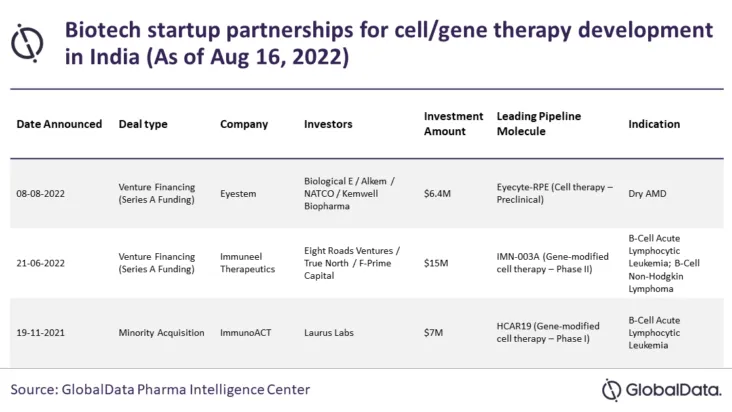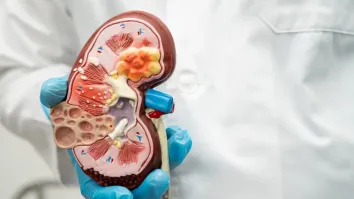
Gene therapy research in India sees growing investment
The country is still in the nascent stage of developing these therapies.
Biotech startups in India focused on developing cell/gene therapies such as CAR-T are attracting more investment from major pharmaceutical companies, which could boost their research and production capabilities, and even make the therapies affordable to those in need, according to a report from GlobalData.
The report noted that India is still in the nascent stage of developing these potential therapies— which are being studied to treat cancers, infections, and genetic diseases—as currently only four cell/gene therapy molecules are being developed in the country.
Gene therapy involves by either replacing a disease-causing gene, inactivating the gene, or introducing a new or modified gene, according to the U.S. Food and Drug Administration.
“Though CAR-T cell therapies have already shown promising results in blood cancer patients who have exhausted all other means of treatment, they come with a high price tag, making them difficult to access. Biotech startups in India are working towards making these expensive therapies affordable,” said Neha Myneni, pharma analyst at GlobalData.
Read more: Lenovo, India research institute speed up cancer research via genetic analysis tool
India has a growing cancer burden as the country is expected to see a 12% rise in cancer cases during the next five years to 29.8 million, according to the Indian Council of Medical Research.
Myneni noted that due to the lack of availability of CAR-T cell therapies in India, patients need to travel to other countries to avail the treatment. The average CAR-T therapy treatment cost in the US ranges between $400,000 to $500,000.
“Through strategic partnerships and enhanced funding opportunities, the budding biotech startups in India are focusing on strengthening their in-house R&D capabilities for these potential therapies,” Myneni said.
The analyst said the success of recent pipeline candidates and their eventual affordability to patients could potentially have a significant impact on the treatment of incurable diseases such as blood cancer and lymphoma both in India as well as on a global scale.



















 Advertise
Advertise






